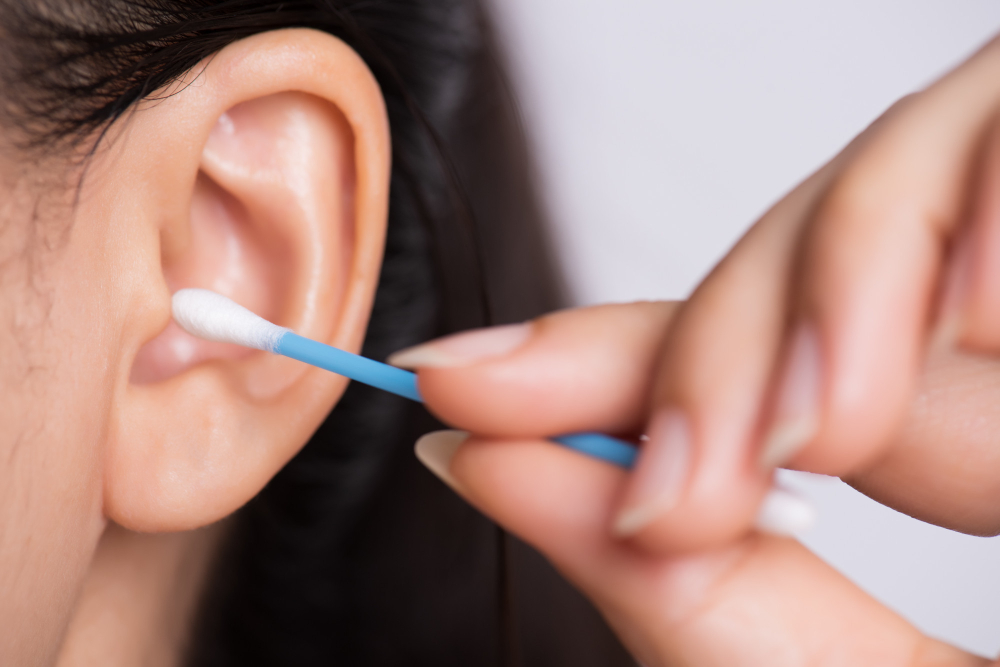Most of us don’t pay attention to this substance present in our ears. It’s just there and quietly doing its job, until one day, your ear feels blocked. Sounds seem duller. There’s discomfort you can’t explain and it suddenly goes into a full blown discomfort. It isn’t painful, but it lingers. This is when it starts to matter – Earwax.
Earwax is not the problem. It is the clue.
It’s one of the body’s simplest, smartest defence mechanisms. It protects the ear canal, traps dust, keeps bacteria out, and helps maintain balance inside the ear. In most cases, it manages itself, slowly working its way out without you ever noticing.
But when something changes, when it builds up, hardens, or causes symptoms, it could be your body’s way of flagging something deeper. Just something worth noticing.
This is where we begin.
When Should You Take Earwax Seriously?
Most of the time, you won’t even think about it. That’s how it should be. Earwax is meant to do its job quietly, without external help.
But when it builds up, or stops moving the way it should, your ear starts to let you know. It might feel full or slightly blocked. You may notice your hearing change, even if only on one side. Some people describe a gentle pressure, or a sensation like water in the ear that never clears.
If those signs last longer than a day or two, it’s worth paying attention.
One thing we see often in our clinic is people trying to fix it at home with common household objects. Cotton buds, ear candles, and tweezers are tools that feel like they help, but often complicate the problem. The wax gets pushed deeper. This leads to the canal getting irritated. What could have been an easy fix becomes more complicated!
There’s a simple way to tell if it’s time to stop guessing. If you’ve tried gently cleaning the outer ear, and the blocked feeling is still there, it’s best to have it checked. It will not take long, and in many cases, the solution is immediate.
Earwax problems are common. The relief, when handled properly, is usually quick.
When Wax Doesn't Clean Out
Occasionally, earwax accumulates rather than flowing out naturally. It becomes hardened and plugs up the ear canal. This is referred to as cerumen impaction.
Your ears will feel heavy or stuffed up. It may cause you to think that you cannot hear well, or that there is a ringing sound where you couldn’t hear one before. Sometimes , it may even influence balance.
This is one of the most frequent reasons individuals see an ENT clinic. In fact, it is also one of the easiest to cure. Once the wax is safely removed, most individuals get instant relief.
Simple Habits That Help
- Avoid cotton buds – They often push wax deeper instead of removing it. This is one of the most common causes of blocked ears we see in our clinic.
- Clean only the outer ear – Use a soft cloth or let warm water from the shower rinse the outside. That’s all your ear needs.
- Take breaks from earphones – Long hours and loud volumes can irritate the ear canal. Short breaks and a lower volume make a real difference.
- Pay attention to small changes – A blocked feeling, dull hearing, or mild ringing that doesn’t go away is worth checking. Ears are good at giving quiet signals when something’s off.
Quick Term to Know: Otitis Externa
Otitis externa is an irritation or inflammation in the outer ear canal. This happens when water gets trapped, earphones are overused, or when the ear is cleaned aggressively. If you notice mild itching or discomfort, which starts to turn into pain or swelling, you can consider a visit to the clinic. Otitis Externa is easy to treat when diagnosed early.
When Should You Come In
Blocked ears, heaviness in the ears or simply not feeling good with your ears-thats your sign to pay a visit to your ENT. You shouldn’t wait for it to become a bigger problem! Most ear issues are simple to treat, and the relief is often instant.
You can choose a time that works for you, and we’ll make the rest easy. Hear better, feel better.






